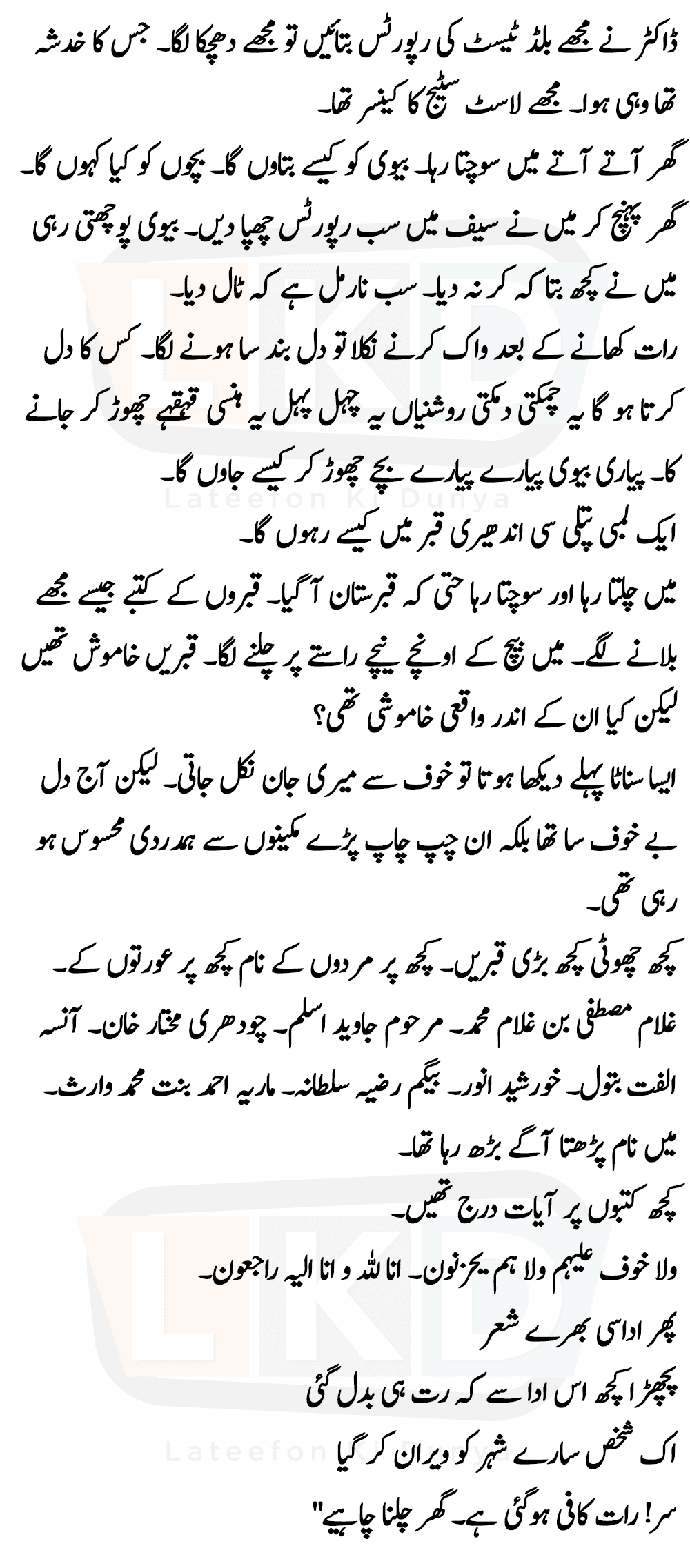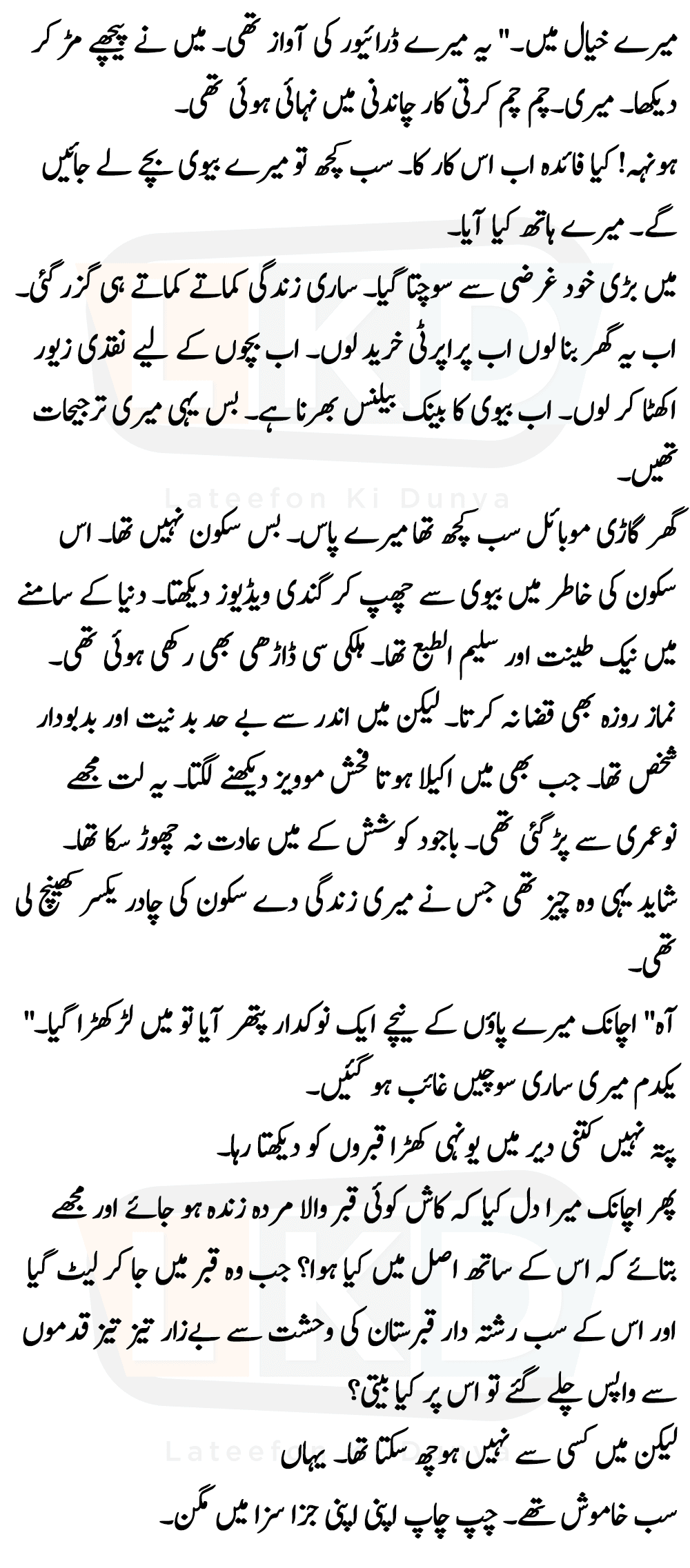When the doctor handed me the results of the blood test, I was hit with a wave of shock. My worst fear had become a grim reality: I was diagnosed with late-stage cancer. As I returned home, I was burdened with the weight of a daunting task—how to break this devastating news to my wife and children. When I reached home, I hid the reports in a safe, unsure of how to proceed. My wife kept asking me questions, but I shared very little, concealing the unsettling truth. Everything seemed normal to her, as I was good at putting on a façade.
Later that evening, after dinner, I slipped out quietly. My heart was heavy with a myriad of emotions. Whose heart would not race at the prospect of leaving behind the bright lights, laughter, and cherished moments with my beloved wife and dear children? How would I find solace in a long, narrow, dimly lit grave?
I walked on, lost in thought, until I reached the cemetery. The tombstones stood in silent testimony to the lives that had passed. As I wandered amidst them, I couldn’t help but wonder if their silence was merely on the surface. Did they truly rest in peace?
I passed by both small and grand graves, some bearing men’s names, while others, women’s. The epitaphs bore verses from holy books and mournful phrases: “Fear neither grief nor sorrow” and “Verily, we belong to Allah and verily, to Him we shall return.” My gaze lingered on these inscriptions.
Then I came across an unmarked grave, illuminated by the soft glow of a lantern. This, I knew, was the dwelling of a saintly recluse. “Baba Ji, I don’t know how many graves you’ve dug, and I don’t know the fate that befell your fellow residents,” I said to the glowing lantern.

“Son, true obedience to the Almighty is the key to salvation. The others here don’t really matter,” Baba Ji replied.

And he handed me a lantern. It was my journey of introspection. I drove away, leaving Baba Ji and the moonlit cemetery behind. I had a home, a car, a mobile phone, and everything material. What I lacked was inner peace.
